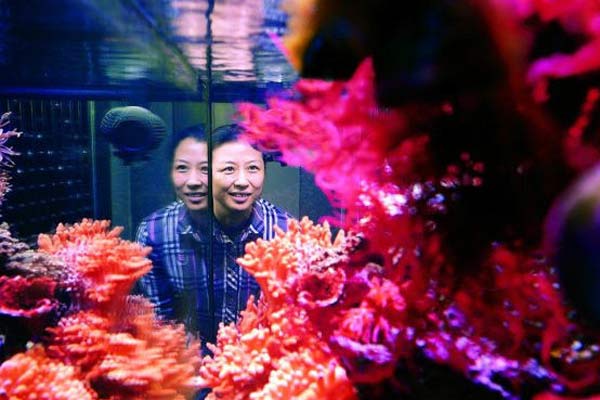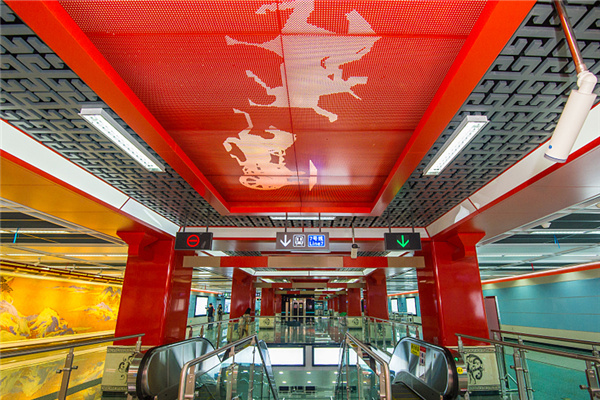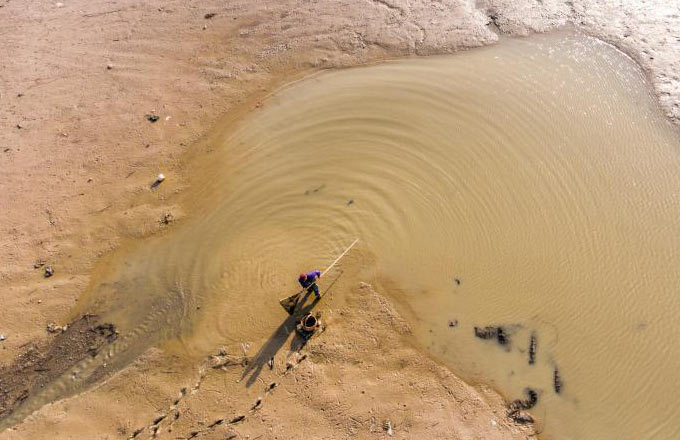Chinese scientists plant corals undersea
 |
|
Huang Hui observes corals in the laboratory.[Photo/Sina] |
HAIKOU - Deep in the silent sea, Huang Hui can hear only bubbles gurgling from her oxygen tank. She can only see a few meters around her, feeling small and alone.
She plants corals, the size of her palm, on the seafloor, hoping they one day become a forest.
If her dream is realized, the forest will have vivid colors, with fish weaving in and out.
A coral biologist with the South China Sea Institute of Oceanology under the Chinese Academy of Sciences, Huang has studied coral for around 20 years. Now she and her team are building a large pilot zone and a demonstration area for coral planting in the South China Sea.
Coral is hailed as rain forest or life engine of the sea. Though it covers less than two thousandths of the seafloor area, it is the habitat of nearly 30 percent of marine species, making coral reefs among the most diverse ecosystems on the planet.
Globally coral provides a living for half a billion people, generating billions of dollars of revenue from tourism and fishing. The South China Sea accounts for 2.57 percent of the resources around the globe, ranking eighth in the world.
Corals require precise living conditions: water can neither be too hot nor too cold, the ideal temperature ranging from 23 to 27 degrees centigrade; hydraulic pressure cannot be too high; salinity must be moderate and stable; and the environment must be clean.
Corals have a symbiotic relationship with zooxanthellae algae, which live in coral and give it nutrition and color. If the environment is unsuitable, the zooxanthellae algae leave, and the coral turns white and dies.
Coral reef degradation tolls the alarm bell of climate change. More than a third of the world's coral reefs are severely degraded. Contributing factors include warmer waters, ocean acidification, seawater pollution, increased UV radiation, destructive fishing and offshore construction. Scientists once predicted corals would be wiped out within 50 years, triggering a breakdown of the entire ocean ecosystem.
Huang still remembers the first time she went underwater. It was in 2002 in the South China Sea, and she saw thickets of corals, dotted with fish, lobsters, holothurians and echinus. "It was stunning and exciting," she recalls.
Her team has investigated all the coral reefs in China. They have corrected and added to many records. They found China has almost 300 kinds of coral.
























